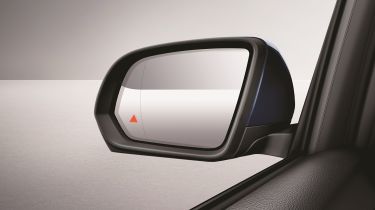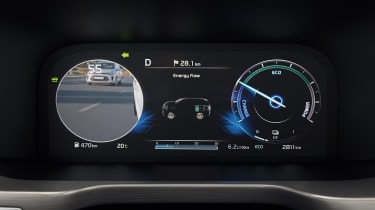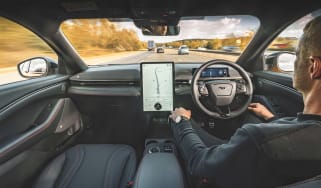What are Blind Spot Monitoring systems?
We explain what Blind Spot Monitoring is in cars and how it can keep you safe

Changing lanes when driving can be dangerous, especially when travelling at high speeds on the motorway. Turning around to check your blind spot is an essential part of the manoeuvre, but it means that for a fraction of a second, your eyes are not on the road ahead. This is where Blind Spot Monitoring (BSM) systems are useful. This technology is fitted to many modern vehicles, and is capable of warning the driver when another vehicle is in their blind spot.
How do Blind Spot Monitoring systems work?
Blind Spot Monitoring systems typically operate via a variety of external sensors located on a car’s bumpers and wing mirrors. These can detect if a person or vehicle enters your blind spot, notifying you via an audible or visual cue - typically, a warning light located in the car’s wing mirrors.
 Top 10 most reliable cars 2024
Top 10 most reliable cars 2024
Many systems will illuminate an amber light on the mirror if a hazard is detected in the car’s blind spot on that side of the car. If the driver then indicates to turn in that direction, there will be a more pronounced warning such as a red light or warning sounds. If the driver still attempts to complete the manoeuvre, some systems that incorporate automatic emergency steering can apply the brakes or turn the steering wheel to prompt a move away from the hazard, similar to a lane-departure warning system.
This technology goes by many different names depending on the manufacturer of the car it’s fitted to. Audi calls its system ‘Audi Side Assist’, Mercedes names it ‘Blind Spot Assist’, while Skoda calls it ‘Blind Spot Detect’, whereas it is dubbed as the ‘Blind Spot Information System (BLIS)’ on all Ford models. However, whichever make and model of car you opt for, most of these detection systems operate in a similar way apart from a few exceptions.

Models such as the Hyundai Tucson are more advanced, incorporating cameras into their setup. Hyundai’s ‘Blind Spot View Monitor’ displays a live feed of the car’s blind spot in the instrument cluster, allowing the driver to make their own judgement before performing a lane change.
On many modern cars Blind Spot Monitoring is a standard feature, although it’s worth checking a car’s specification to make sure it’s fitted. On some models, such as the Ford Focus hatchback, Blind Spot Monitoring is available as an option or as part of a driver assistance package. These packs can cost from a few hundred pounds to over £2,000 depending on the model and the other technology that’s included.
Is blind spot monitoring worth it?
Blind Spot Monitoring is a useful feature that helps keep you safe while out on the road. The system can be incredibly handy and can help prevent an accident. Plus, with many manufacturers sacrificing driver visibility over style with angled roof lines and smaller side windows - features like this can be vital.
Do bear in mind, however, that these systems are not completely infallible and that you must rely on your own vision and judgement at times when driving. We would always recommend checking your mirrors and your blind-spot manually before changing lanes, using your Blind Spot Monitoring system purely as a back-up. Depending on your budget, the cost of this technology can be expensive, but we wouldn’t class it as a must-have feature unless you have mobility issues that make manually checking your blind-spot difficult. It’s another one of those safety aids that afford a valuable extra layer of protection for drivers.
Want peace of mind when out on the road? Check out our list of the top 10 safest cars you can buy
Car safety made simple
Recommended

In-car safety assistance systems leaving drivers confused and dissatisfied

MoT guide: cost, info and what happens if your car fails
Most Popular
Tips & advice

Car dashboard warning lights: what does each symbol mean?

Electric car charging stations: public networks, charger types, apps and maps






